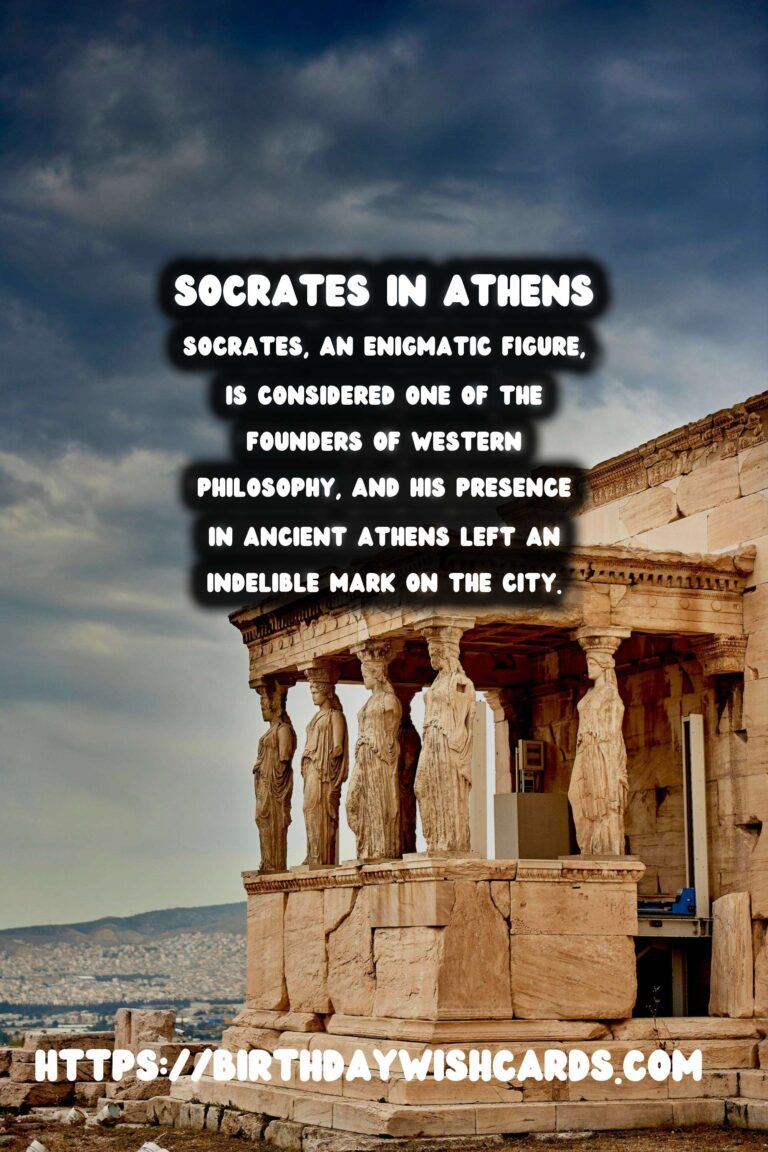
Socrates, an enigmatic figure, is considered one of the founders of Western philosophy, and his presence in ancient Athens left an indelible mark on the city. This article aims to take you back in time to explore the life and teachings of Socrates, while reflecting on his influence in Athens.
The Life of Socrates
Socrates was born around 470 BCE in Athens, a city that was the cradle of democracy and cultural flourishing. Unlike many other philosophers, Socrates did not leave behind any written works. Most of what is known about him comes from the works of his students, notably Plato.
His unique approach to philosophy involved rigorous dialogue and questioning, a method now known as the Socratic method. This style of inquiry sought to stimulate critical thinking and illuminate ideas by dismantling assumptions.
Socratic Influences in Athens
The city of Athens, where Socrates spent his life, was a hotbed of philosophical activity. Socrates had an immense influence on the culture and intellectual life of the city. He would often be found engaging citizens in conversation at the Agora, Athens’ bustling marketplace. Walking through the historical remnants of these sites today provides a tangible connection to Socrates’ world.
Through the Socratic method, he sought to challenge the traditional norms and beliefs of Athenians. His teachings emphasized the importance of ethical living and the pursuit of wisdom, which laid the groundwork for future philosophers, such as his student Plato, and Plato’s student, Aristotle.
The Trial of Socrates
Despite his contributions to philosophy, Socrates’ questioning of traditional beliefs led to suspicion and controversy. In 399 BCE, he was tried on charges of impiety and corrupting the youth of Athens. Socrates’ defense was as provocative as his questions, asserting his duty to seek truth and wisdom above all else.
He was ultimately sentenced to death, a verdict that has been debated for centuries. This trial is a critical event that highlights the tension between old and new ways of thinking in classical Athens and remains a pivotal moment in philosophical history.
Legacy of Socratic Thought
The impact of Socrates on philosophical thought is immeasurable. More than two millennia later, his methods and teachings continue to influence modern philosophy, education, and critical thinking. Today, the Socratic method is a common teaching technique used in law schools and educational institutions worldwide.
His emphasis on questioning, ethics, and the belief that knowledge is virtue, continues to be relevant in contemporary discussions about morality and human nature. Socrates’ life and ideas invite us to constantly question our own beliefs and the world around us.
Visiting Socratic Sites in Athens
For travelers interested in philosophy and history, Athens offers a unique opportunity to walk the same paths Socrates once did. Sites like the Agora, the Acropolis, and the Pnyx, where debates were held, offer a glimpse into the world of ancient Athens. These locations not only preserve the memory of Socrates but also serve as a reminder of the rich intellectual history of the city.
Socrates’ presence is felt throughout the city, offering insightful connections to the modern world. As you explore these sites, you are not merely walking through history; you are engaging in a dialogue with one of history’s most profound thinkers.
In conclusion, tracing the footsteps of Socrates in Athens is more than a historical journey; it’s an invitation to explore the depths of philosophical inquiry and to appreciate the lasting impact of Socratic thought on civilization.
Socrates, an enigmatic figure, is considered one of the founders of Western philosophy, and his presence in ancient Athens left an indelible mark on the city. Despite his contributions to philosophy, Socrates’ questioning of traditional beliefs led to suspicion and controversy. 
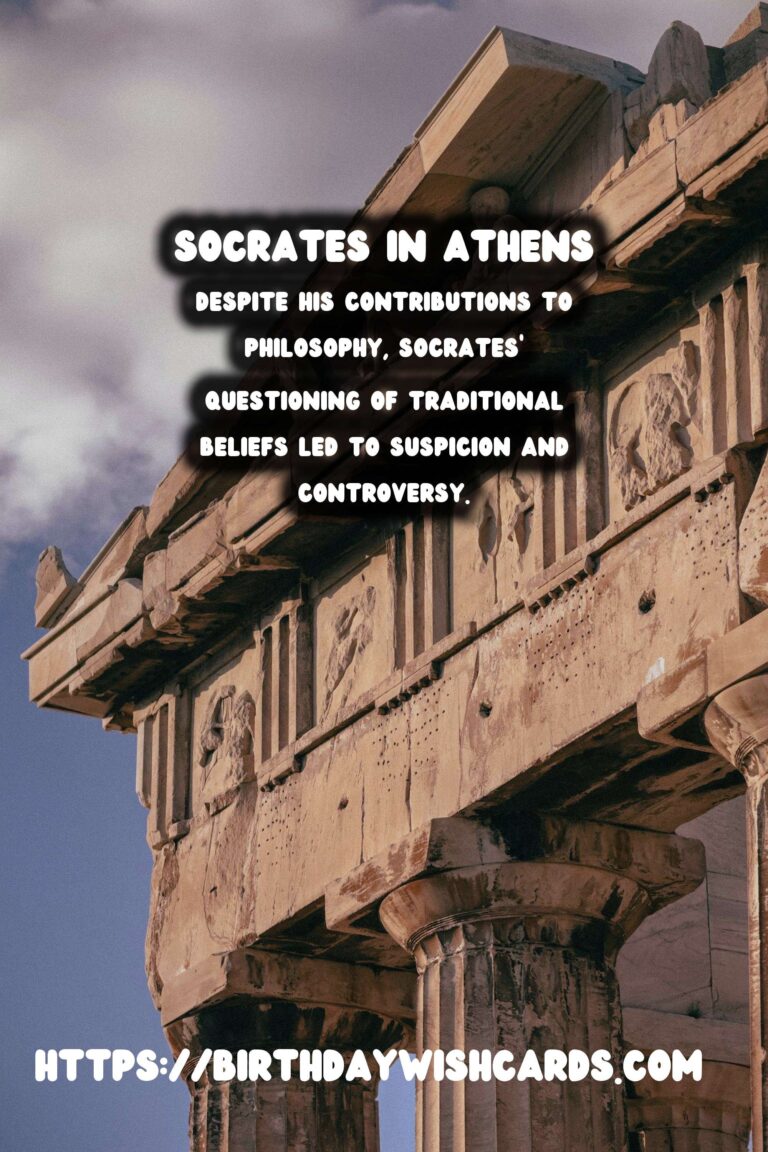

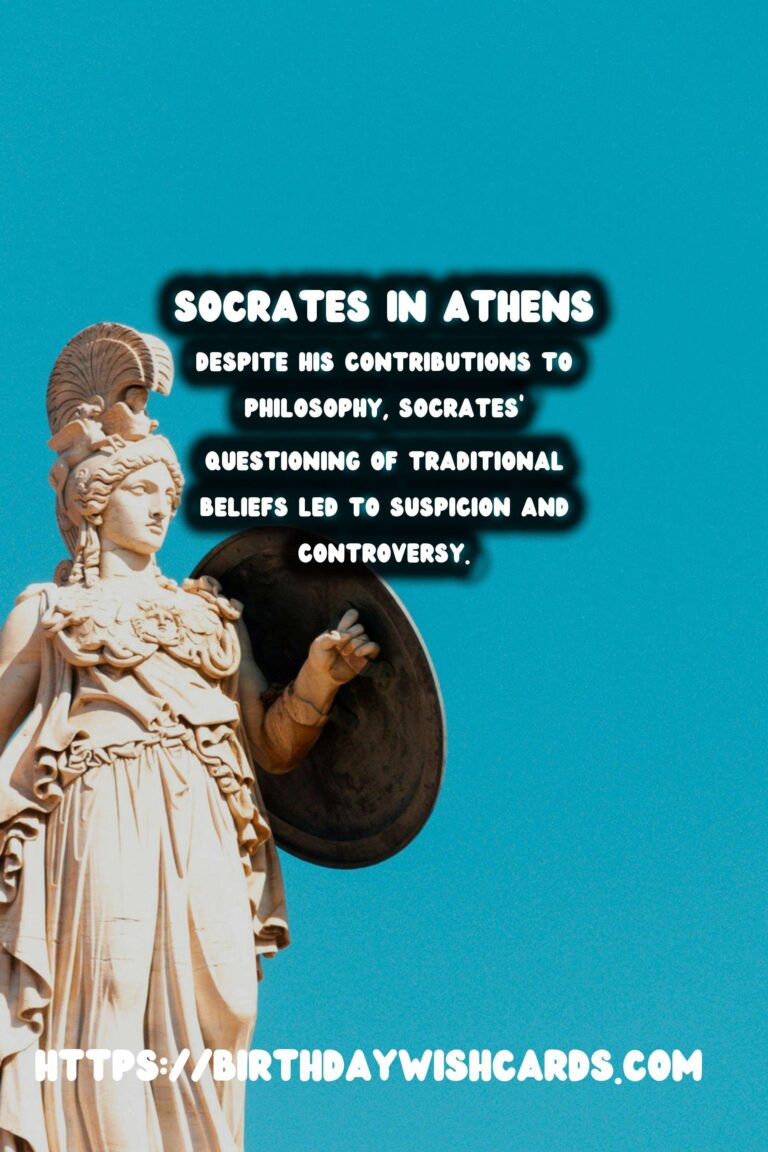

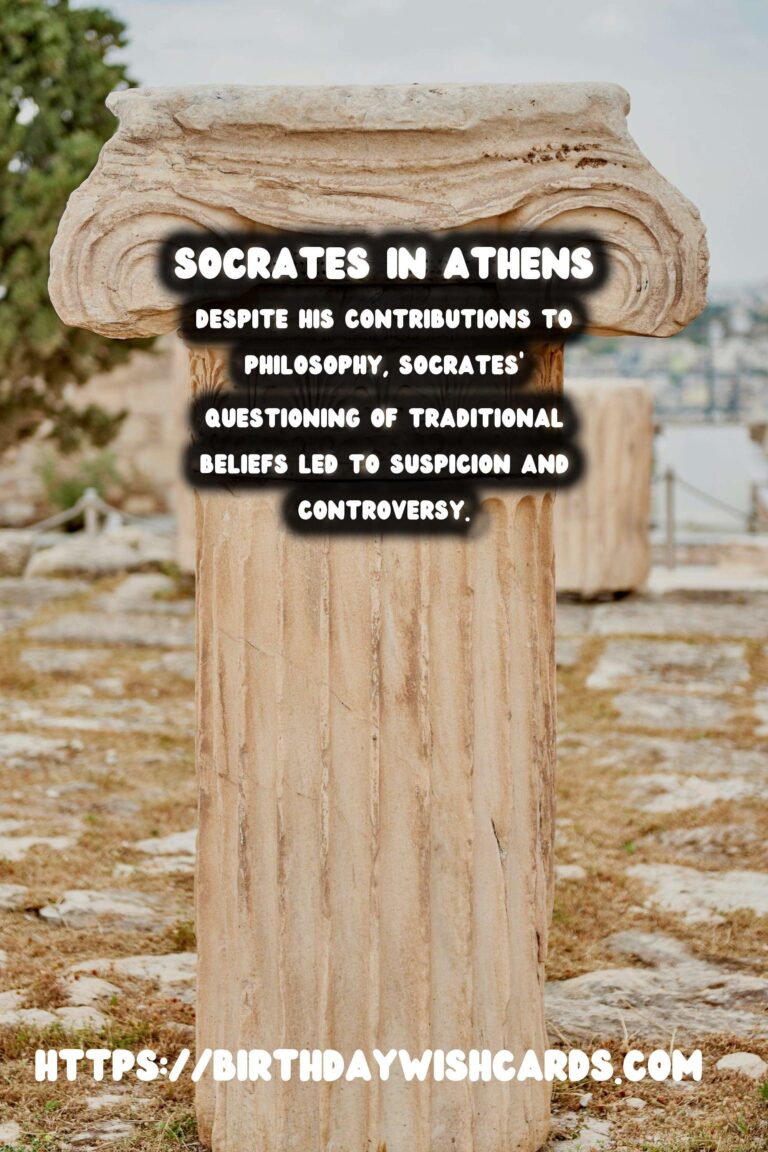
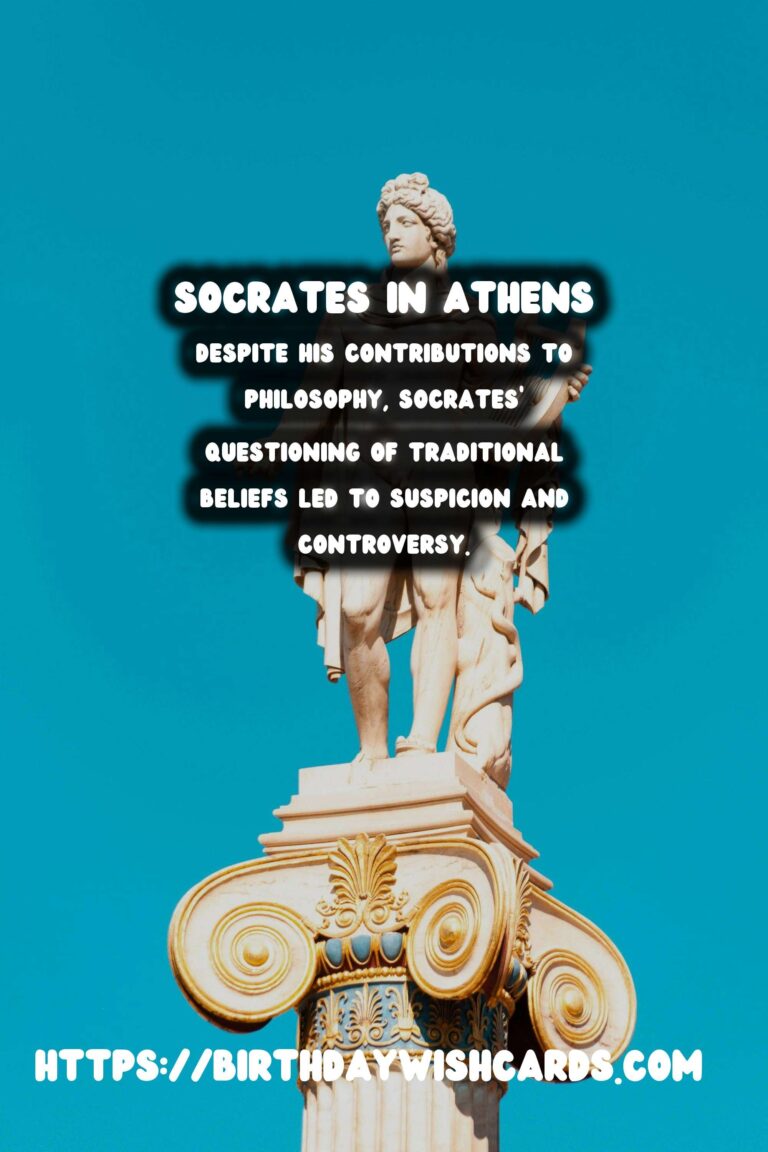


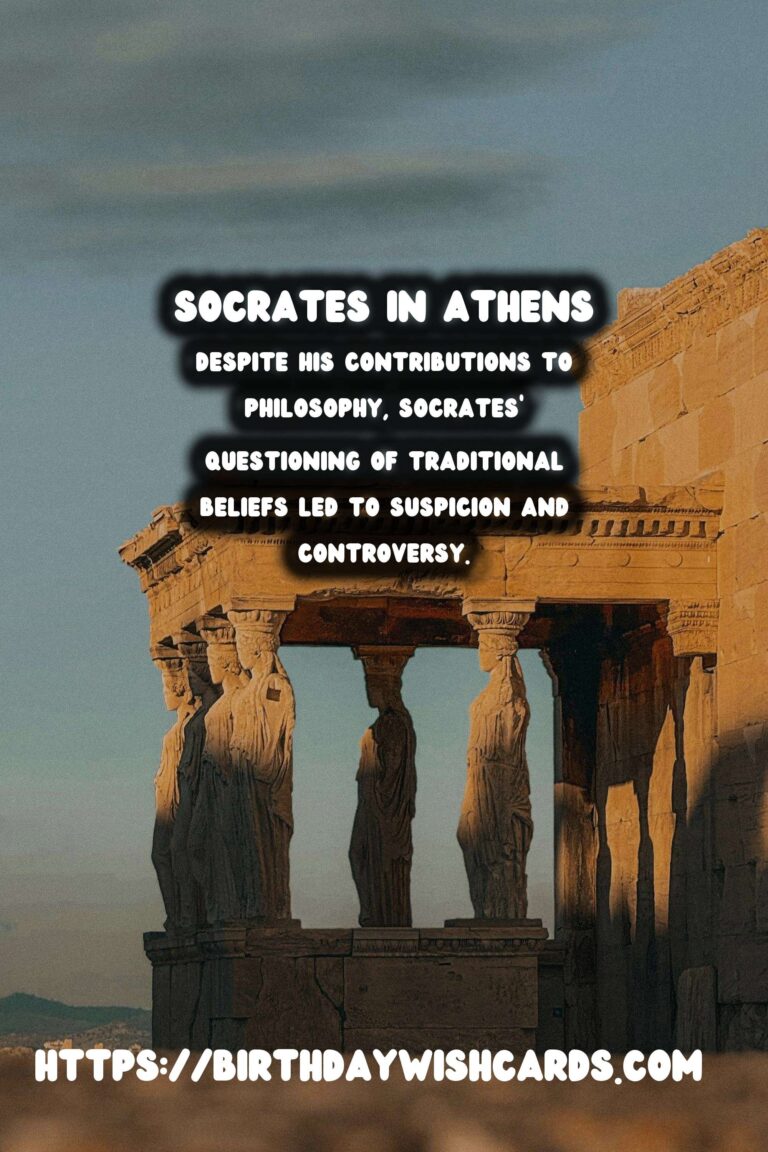
#Socrates #AthensPhilosophy




